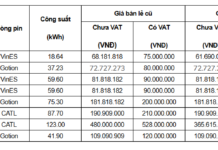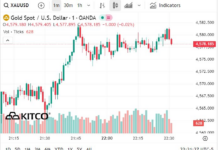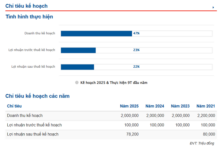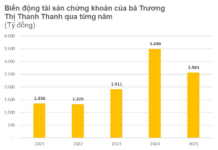Vietnam’s Prime Minister Pham Minh Chinh issued a comprehensive directive on May 2 to address obstacles in production and business, fostering growth and macroeconomic stability.
Vietnam’s 2023 economic performance exhibited macroeconomic stability, contained inflation, ensured major economic balances, maintained currency stability, and controlled public, government, and foreign debt, as well as budget overspending, according to the directive.
2024 Goals
However, it emphasizes that 2024 is critical for accelerating progress toward achieving the 5-year Plan (2021-2025) goals. The strategy hinges on “five increases” and “five decreases.”
Key priorities include expanding access to credit (particularly for small and medium-sized enterprises), removing regulatory barriers, improving credit quality, strengthening coordination among the state, financial markets, and businesses, and enhancing transparency in interest rates and combating predatory lending.
Concurrently, the focus is on lowering lending interest rates to affordable levels, reducing operational and transaction costs, streamlining administrative procedures, minimizing unnecessary complexities, and resolutely curbing negativity and vested interests within the financial system.
Additionally, the plan outlines “five accelerations and breakthroughs.” These include expediting digitalization, enhancing service quality, developing human capital within the banking system, modernizing banking infrastructure, and better serving production and business needs to create jobs and drive economic growth.

Key Measures
The State Bank of Vietnam will proactively monitor global and domestic economic conditions to ensure flexible, responsive, and effective monetary policy management. The bank will also intensify its supervision of the gold market, gold trading entities, and credit institutions.
Credit institutions will be instructed to prioritize lending to production, business, and key growth sectors while continuously seeking to lower lending interest rates.
The Ministry of Finance will maintain an expansionary fiscal policy, coordinating closely with monetary policy and other macroeconomic initiatives to support growth, stabilize the economy, control inflation, and ensure major balances.
To address issues in the housing and real estate sectors, the Ministry of Construction will expedite the review and revision of relevant laws and regulations. The Ministry of Planning and Investment will continue to enhance the effectiveness of the Small and Medium Enterprise Development Fund.
The Ministry of Industry and Trade is tasked with further diversifying export markets, products, supply chains, and production networks. The Ministry of Public Security will collaborate with the State Bank of Vietnam to prevent and address cross-ownership and manipulation within credit institutions.
The Ministry of Natural Resources and Environment will prioritize submitting detailed implementing legislation for the Land Law and Water Resources Law. Furthermore, the Ministry of Agriculture and Rural Development will coordinate with relevant agencies to streamline procedures for veterinary drug registration and compliance.
Lastly, the People’s Committees of provinces and centrally-run cities will collaborate with banks, enterprises, and citizens to foster a favorable environment for banking activities, particularly credit operations and payment services.
Prime Minister Pham Minh Chinh’s directive signals a proactive and dynamic approach to economic governance in Vietnam. With a strategic focus on growth, stability, and efficiency, the directive lays the foundation for sustained progress and resilience in the face of evolving challenges.
As Vietnam navigates the complexities of a rapidly evolving global landscape, the government’s commitment to effective monetary policy management remains steadfast, underpinning the nation’s path towards prosperity and development.





































